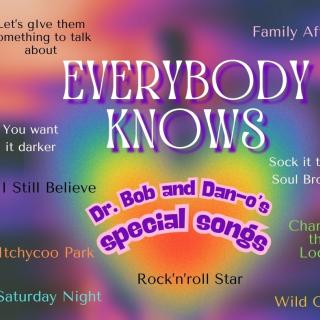Advertisement
This is a music story that begins, oddly enough, in a courtroom at the United States Court of Appeals for the Sixth Circuit in Cincinnati, Ohio. Around a month ago, I happened to be present when arguments were being made in the case of PGP, LLC vs. TPII, LLC, et al. PGP is a corporation owned by a Nashville talent manager named Herbert Graham. TPII is the corporate face of Keith Burns and Hattie Newfield, two of the three founding members of the pop-country band Trick Pony.
Trick Pony is godawful. I’m not sure if their songs “Pour Me” and “On a Night Like This” were the absolute nadir of late 2000’s pop-country dumbassery, but if they weren’t it certainly wasn’t for lack of trying. Every cheap trick (sorry) in the book, from exaggerated accents to American flag themed guitars. Their website even features an adorable listing of the band members likes and dislikes. For the record, Newfield dislikes mean people and blue cheese and Burns is a fan of cold beer.
But even if the band is a bag of turds, it’s apparently a valuable bag of turds. The lawsuit is an attempt by Graham to get a court injunction preventing Burns and Newfield from performing and recording as the band Trick Pony, as well as to obtain money for the damage that band’s use of its own name has caused to Graham’s trademark.
Wait, what? Whose trademark?
Funny you should ask that. So it turns out that, according to the legal briefs, in 2002 the band had entrusted Graham to register their name as a trademark. Trademarks don’t last forever, however, and on October 14, 2011 it was due to expire. At this point in time, Trick Pony had been on hiatus since 2008 and likely wasn’t paying much attention. Graham, however, was. He did not renew the trademark on the band’s behalf prior to the expiration date, and in December of 2011 he trademarked the name for himself.
I hear you saying, what a dirty dog! What an astonishing cock-weasel! Graham claims that he registered the trademark so that he could form a new band with the same name to recoup money he had lost managing the band. No such band was ever formed.
In 2016, Burns and Newfield re-activated Trick Pony, touring and selling recordings. Shortly thereafter, they were hit with a trademark lawsuit from Graham, seeking both money for trademark infringement and a preliminary injunction to prevent the group from using the name Trick Pony.
What the hell is a preliminary injunction? Conceptually, it’s a court order to keep something from happening that can’t be taken care of with money later on. For example, say you have a contract to buy a gray 2010 Honda Civic. At the last minute, the seller tries to get out of the deal and sell the car to someone else. You might have to pay a little more, and it might be a pain in the ass, but you can always find another 2010 Civic. The seller can pay you money to cover the higher price and the inconvenience.
But now assume the contract isn’t for a 2010 Civic, but is instead for your one-of-a-kind dream house. Once that house is gone, it’s gone. You will never have the opportunity to purchase that house again. Here money can’t solve the problem after the fact, and a Court may issue a preliminary injunction to prevent the sale of the house while the case plays out.
Graham argued that the name Trick Pony was his one-of-a-kind dreamhouse which would be forever damaged if Newfield and Burns performed under the name. In a vacuum this makes sense. If fans thought they were going to see Trick Pony and ended up seeing a bunch of random slobs from Des Moines, they would be pretty pissed off and unlikely to purchase a ticket in the future. In context, however, this makes no sense at all – fans who buy a ticket to see Trick Pony will see…Trick Pony.
Graham got no love at the lower court level on the injunction issue. In its opinion denying Graham’s motion, the court stated that “granting injunctive relief to PGP would be against the public interest because it would grant a non-practicing entity undue leverage in licensing negotiations.” That’s courtspeak for “you aren’t actually worried about damage to your trademark, you just want an injunction as leverage to force the band to give you more money from their tour.” Judging from the argument I watched, Graham might not get much love from the Court of Appeals either.
As the late, great Bon Scott once said, it’s a long way to the top if you want to rock ‘n roll. It’s worth remembering that your MP3’s are the product of a savage and ruthless industry, where nice guys get washed away like the snow and the rain.



